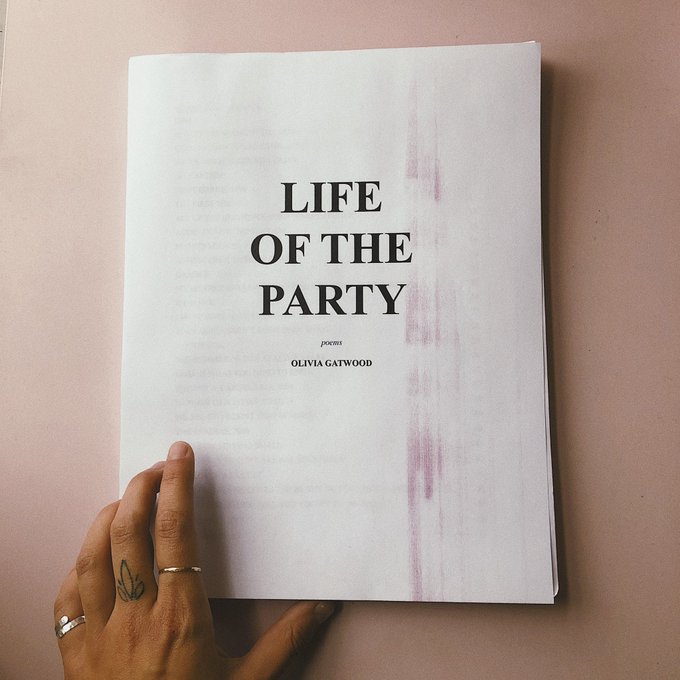“Life of the Party” Dives Deep Into The Darkness of the Female Experience
February 3, 2020
In recent years there has been a resurgence of feminist poetry. Familiar with modern popular works such as Amanda Lovelace’s The Princess Saves Herself in This One and Rupi Kaur’s Milk and Honey, I was on the hunt for something similar, yet different. Through Olivia Gatwood’s 2019 debut collection Life of the Party, I found what I was looking for and then some.
Life of the Party is a collection of odes, anecdotes, sonnets, and prose, which all come together to paint a narrative of what it means to experience today’s society as a young woman. The book is largely a memoir, and it has pieces of Gatwood’s living truth riddled throughout. “This is a book of poems about true crime,” Gatwood wrote. “It is also a book about the many small violences that a person can withstand. It is a book about the memory of girlhood.”
One painful truth that Gatwood has had to endure: she was sexually abused by her boss while working at a bakery in high school. This experience is woven into her piece, “Mans/Laughter”. Below is a line from the piece.
Laughter requires modification in our breathing patterns. EXAMPLE: While I struggle to breathe, so does the man. At the bakery where I work, my boss asks me to visit him in his office three times a day, where he details the things he would like to do to my teenage body. Today, a policeman sits next to him. When my boss says, I would fuck you against a wall, the cop laughs so hard he has to hold on to his duty belt.
Life of the Party is not merely a retelling of tragedies that have happened in Gatwood’s life. More importantly, it unapologetically brings to light the darker experiences that those who have ever identified as women have had to endure. Gatwood’s novel is simultaneously inspired by and written for every woman who has ever lived to experience any degree of misogyny, “pretty” privilege, racism, sexual harassment, abuse, or sexism committed against them by society.
Besides drawing from her personal life, Gatwood found inspiration for her collection through true crime. She was fascinated by the representation of women in true crime narratives. She thought that the narratives reduced women’s images and stories to, “how a woman looks and why she deserves it.” One true crime case that rocked the nation and inspired many of Gatwood’s pieces was the coverage of JonBenet Ramsey’s murder. Below is a line from the piece, Murder of a Little Beauty.
Dab your eye, we know you like it gory. Only blondes get a cover story. Girls go missing right around the corner, but she needs a tiara for us to mourn her. Naturally attractive, exceptionally bright, how many ways can we say the word white?
Gatwood wishes to see more true crime that is written by women. “I want more stories that honor girls, not sensationalize them,” she said. “The true crime I want does not celebrate police or prison as a final act of justice, but recognizes these systems as perpetrators, too.”
The book is not an easy read if the person reading it is triggered easily by these oftentimes difficult and complex subjects. However, before the book starts, Gatwood makes the intention of her words very clear through her author’s note. A segment of it is provided below.
This book remembers the ways I have watched women I love disintegrate at the hands of men they trusted, girls found and not found, and ultimately, how I have healed while keeping some necessary part of this fear intact.
Gatwood, with incredible eloquence and unwavering courage, names that fear which lives inside of all of women. It’s the same fear that causes me to walk with my keys in hand in the Wal-Mart or SMSU parking lot so that I can use them as a knife in case a man tries to take me. It’s the same fear that causes us as women to feel unsafe while running alone. We aren’t alone in this fear, and Gatwood made this clear:
Reader, I cannot promise you will be less afraid when you finish this book, but I hope you will feel more able to name what lives inside you. . . The only answer I have is this: to help us feel less alone in the dark.

